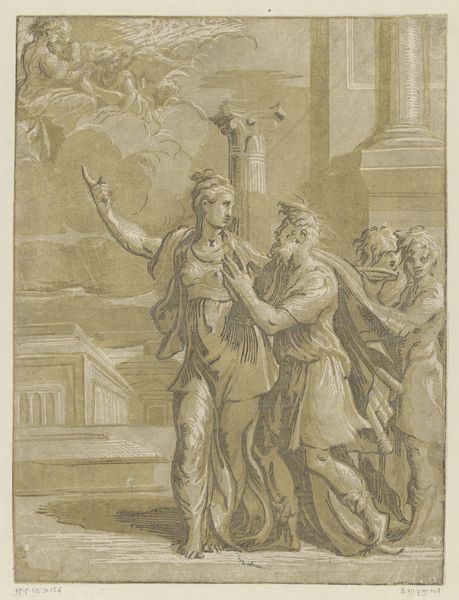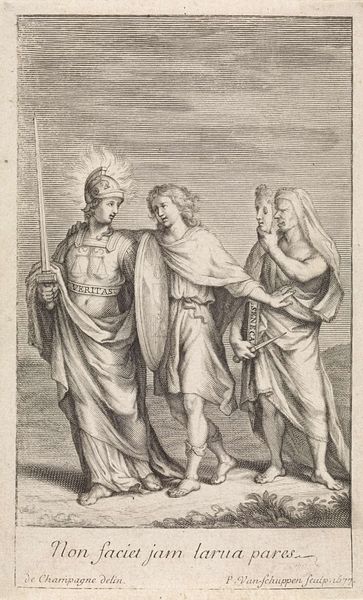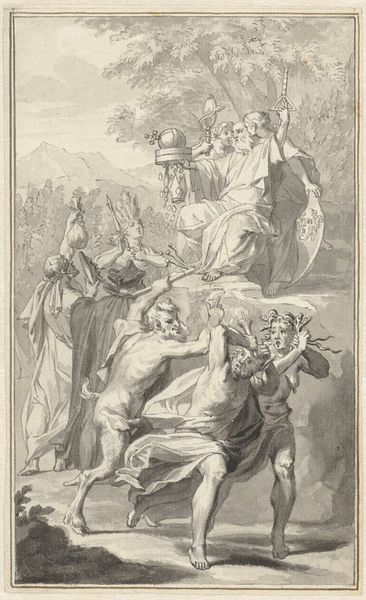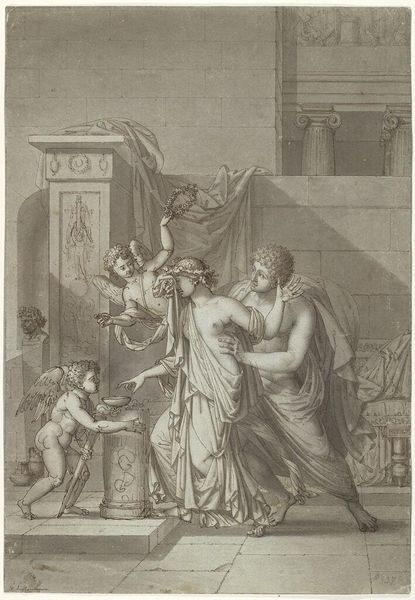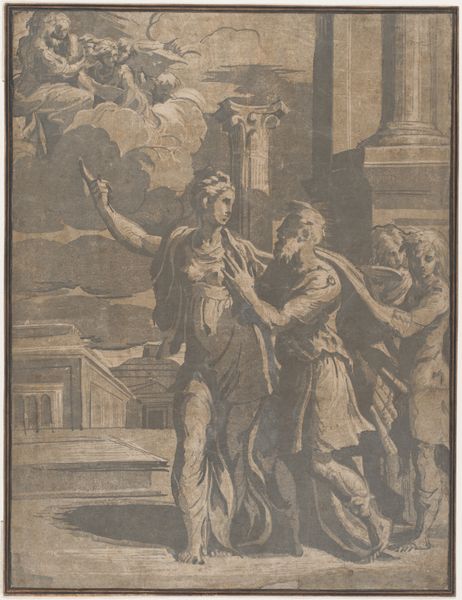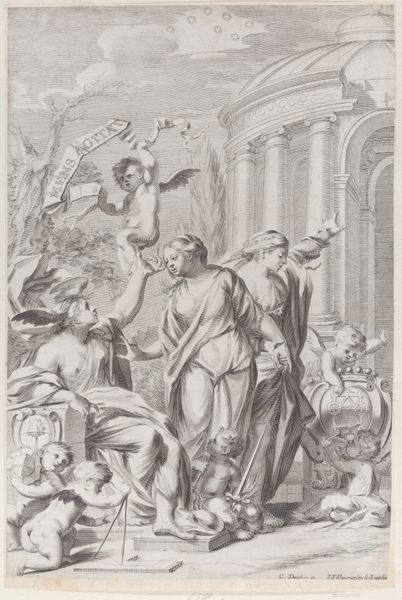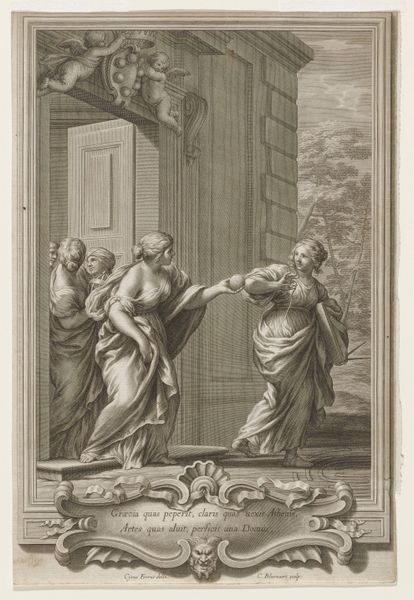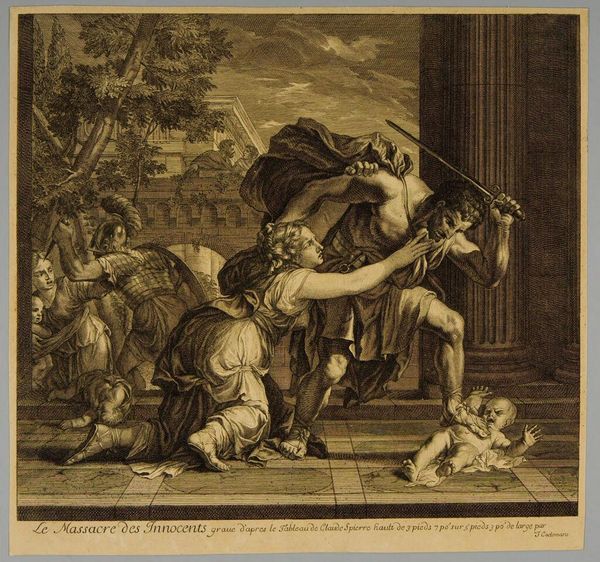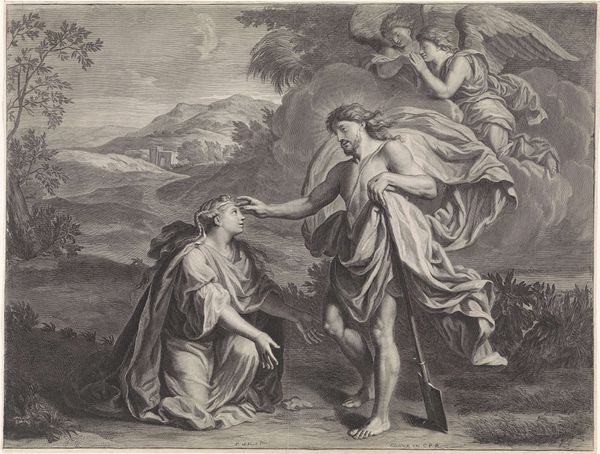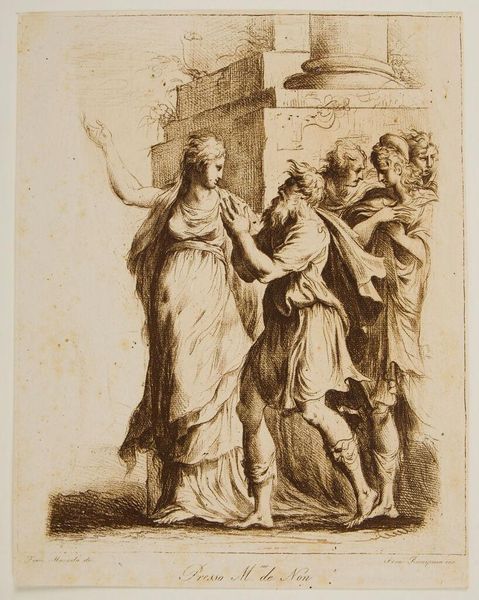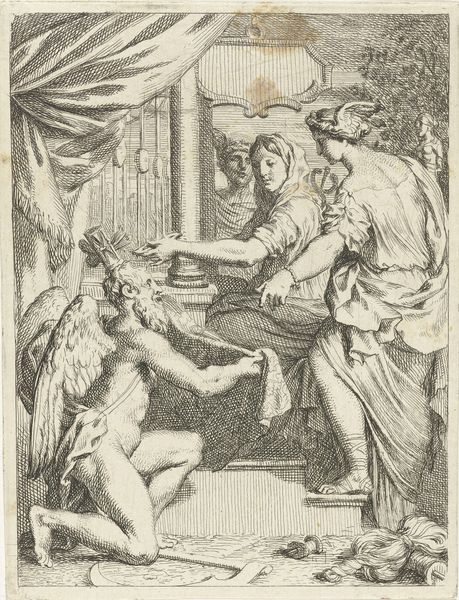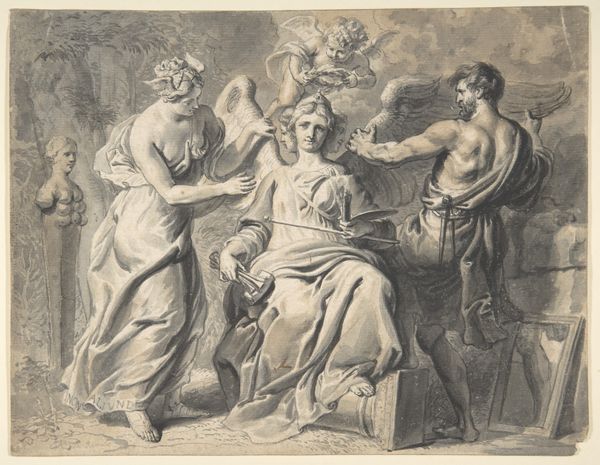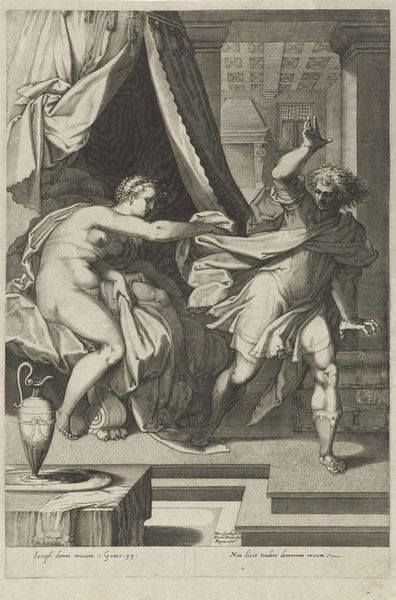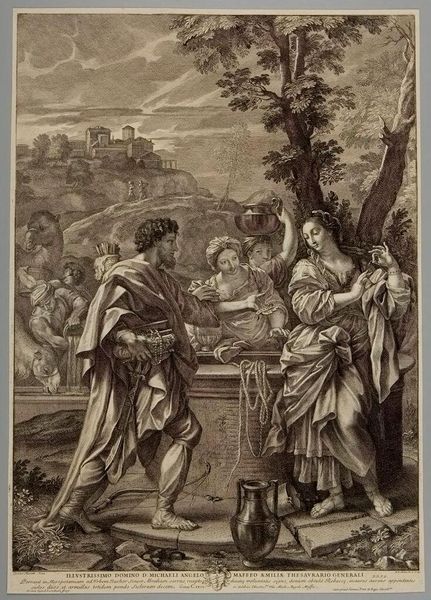
drawing, print, paper, ink
#
drawing
#
narrative-art
# print
#
classical-realism
#
charcoal drawing
#
figuration
#
paper
#
11_renaissance
#
ink
#
history-painting
Dimensions: 332 × 259 mm
Copyright: Public Domain
Editor: This is Parmigianino’s "Augustus and the Tiburtine Sibyl," made with ink on paper. I’m struck by the figures; they feel almost sculptural because of the way the ink defines them, but I'm unsure about what they might be doing. How do you interpret this work? Curator: Focusing solely on its visual language, observe the composition: Parmigianino constructs a dynamic scene through the strategic arrangement of figures and architectural elements. The Sibyl gestures dramatically towards a vision, while Augustus appears awestruck, creating a visual push and pull. What compositional tools do you notice at play? Editor: Well, I notice the contrast. The architectural structures create depth, moving the eye toward the figures in the center. Then the cloud formation pulls the eye to the top. Also, the expressions on their faces adds to that narrative drama. Curator: Precisely. Now, consider the tonal variations in the ink wash. Note how the artist employs chiaroscuro to sculpt the figures and imbue them with volume. Light and shadow delineate form, drawing our eye to key focal points. It emphasizes a contrast, which in turn highlights meaning. What more do you think the contrast may represent? Editor: Perhaps the tension between earthly power and divine knowledge? It really makes you think. Thank you! Curator: A keen observation! By attending to form and composition, we can uncover new dimensions.
Comments
No comments
Be the first to comment and join the conversation on the ultimate creative platform.
